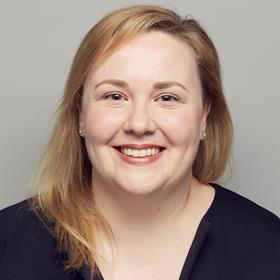The Urban Land Institute, leaders of creating sustainable communities, has launched an Urban Technology Framework to help cities advance into the next generation.

The Urban Technology Framework has identified 12 current trends that will shape metropolitan hubs. This, in turn, will help the developers and architects that are responsible for delivering future cities.
Key tech trends include 3D printing transforming the way we build and the Internet of Things (IoT) changing smart buildings from stationary structures to machines. Digitalisation will transform business models, causing the existing sharing economy to extend even further: with people sharing houses, cars and clothes.
The framework sorts the trends into three themes that will transform our cities: digital technologies, urban land factors and business models. These must be considered in every plan for the future, with consideration given to how they will affect communities, institutions, buildings and the public realm.
Digital technologies will transform the way we interact with and in cities. Current technologies mean communities are no longer limited to locality, with small and fluid tribes are increasingly defined by digital and physical worlds. The impact of further technologies, such as increased connectivity, IoT, smart machines and driverless cars, could be equally significant.
Urban land factors create the context that digital technologies need to work in. These factors can be people, organisations, scale of development and stage of design. Property developers and architects have the opportunity to integrate technologies in design to respond to changes in the way people work or travel.

Finally, digital organising and business models will use technologies to deliver services in urban centres. Cities of the future will offer digital retail, a focus on customer experience and an expansion of the sharing economy.
Property developers and architects will have to consider the trends in transformational change facing cities and people’s living experience. The Urban Technology Framework can act as a guide in this urban transformation process.
The Urban Technology Framework is an initiative of the ULI Tech Forum, co-chaired by Adam Burstow, a group digital and IT director at Grosvenor Group and Ed Parham, an associate at Space Syntax. Lauren Poon, associate at CallisonRTKL, is acting as its vice-chair.
“The ULI Urban Technology Framework illustrates how technology intersects with our urban areas and aims to provide a platform to understand how we shape our cities,” said Adam Burstow, co-chair of the ULI UK Tech Forum. “From new business opportunities to digitalised worlds, there are ever increasing possibilities for tech advancements and with our framework, urban professionals can better understand how waves of technology could influence our urban environment.”
Ed Parham, co-chair of the ULI UK Tech Forum said: “From economic opportunities to social benefits, there are ever increasing possibilities for tech advancements and with our framework, urban professionals can better understand how digital technologies could improve our cities and create value for the people that are part of them.”
Vanessa Hale is the chair of ULI UK






























No comments yet